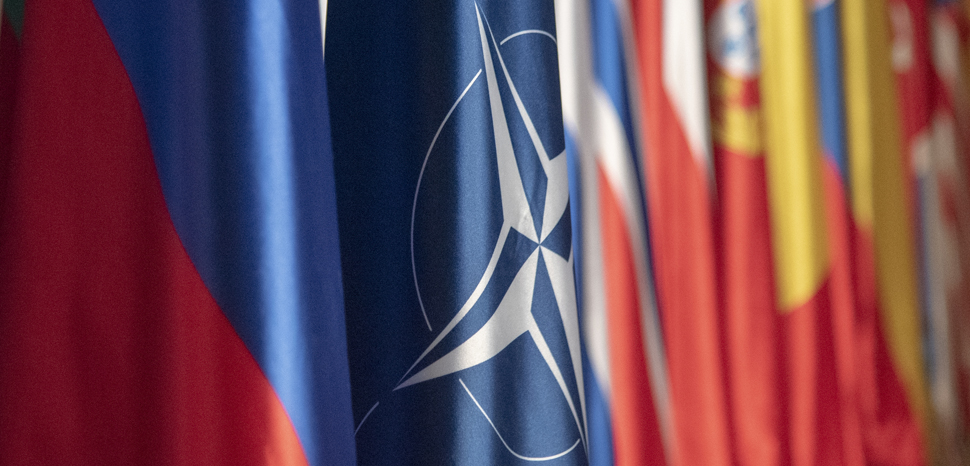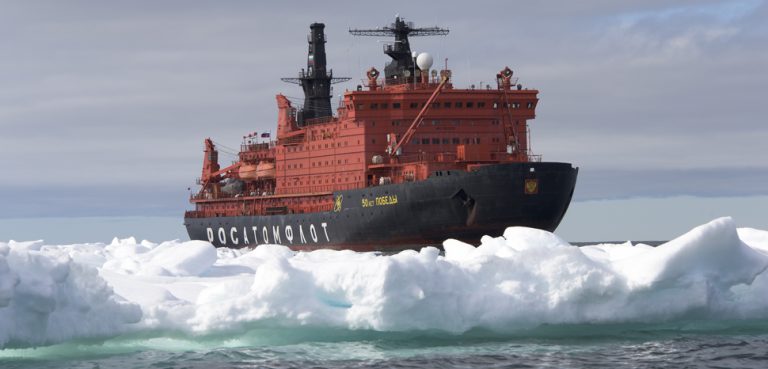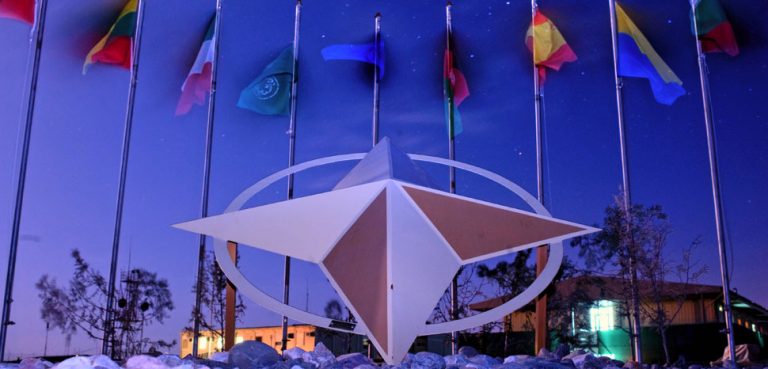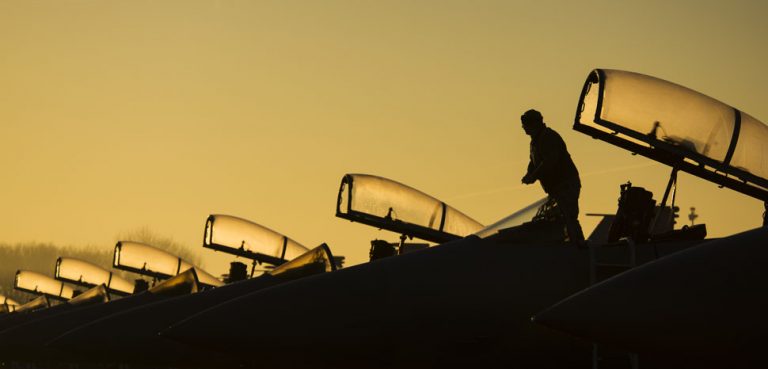Over the last decade, and now against the backdrop of the Covid-19 pandemic, the world has witnessed an alarming rise in instability. Conflict continues to spread across the Middle East and Africa, creating one major failed state after another, from Syria to Libya, with even more teetering on the brink. Europe is starting to feel (and worry about) the seismic geopolitical reverberations out of the eastern half of the continent – from the political turmoil in Belarus and the ongoing conflict in Eastern Ukraine, to increased tensions and regional flare-ups across the South Caucasus and the Balkans. NATO allies Greece and Turkey are embroiled in a dispute over maritime rights in the Eastern Mediterranean, while a recent spate of attacks has left Bosnian Muslims fearing a return to the massacres of the 1990s at the hands of their Serbian neighbors.
Meanwhile, the recent clash between Armenia and Azerbaijan over the long-disputed Nagorno-Karabakh enclave has put Russia and Turkey on a direct collision course that threatens not only to fracture NATO, but spark a wider European conflict. While the EU and its member-states prioritize the pandemic, Armenian President Armen Sarkissian has warned that “the disaster out of the Caucasus” could result in a “virus of instability” that could plague Europe for decades to come, with disastrous geopolitical consequences. If Mr. Sarkissian is right, this could lead to all-out war – and not just among traditional adversaries.
But before we even get to that very worst of the worst-case scenarios of a direct collision between a NATO ally and Russia, even the slightest escalation in the region, considering its vital energy resources, could have a devastating impact on global markets, which in itself would kick off a wave of instability and eventual warfare.
As market economies evolve and integrate by engaging commerce and leveraging technology, the blend between national security and socio-economic imperatives becomes even more prescient. This carries with it both advantages and disadvantages. Traditionally, NATO military forces have relied on critical civilian infrastructure such as communications, food and water, industrial capacity, civil transport and energy supplies to conduct operations. The additional rise of non-kinetic asymmetric threats – cyberwarfare, information warfare, EMP attack – against non-traditional targets, such as banks or major multinational corporations that comprise key components of this critical infrastructure, adds an entirely new dimension to the defense requirements of the 21st century. In addition to dealing with more conventional kinetic threats from traditional and emerging adversaries, NATO must prepare itself for this new era of invisible warfare through deeper strategic cooperation with the private sector and corporate entities.
Great Powers and non-state actors alike can now conduct non-kinetic attacks just as devastating as any nuclear, biological or chemical WMD, resulting in millions of deaths and the mass breakdown of societies, while in turn undermining the doctrine of Mutually Assured Destruction and other deterrents against nuclear war. But even contained instability within specific regions could still disrupt markets on a global scale, whether directly targeting infrastructure or as a knock-on effect of a conventional engagement, as in the case of Nargono-Karabakh and the threat to Europe’s energy supplies. A European energy crisis alone could prove the tipping point toward a wider war, or a societal breakdown, without a single shot fired.
More than ever, the Alliance needs to shore up relations between its member-states. While Turkey has thrown in with its traditional allies in Baku, its fellow NATO partner France is now considering the unprecedented step of recognizing the Republic of Artsakh, Armenia’s name for Nagorno-Karabakh. Right there exists a potential fissure that an outside power like Russia could readily exploit for its own benefit – and with possible devastating effect – in the lead-up to a potential conflict. France and Turkey have already found themselves backing opposing factions in Libya, whose collapse occurred as a result of NATO action against the Qadafi regime. Though it is not unprecedented for NATO allies to pursue separate or even contradictory objectives outside of the Alliance’s operational umbrella, to see such fissures result from a NATO operation in the case of Libya, and then on European soil itself – as a resurgent Russia flexes its new subversive muscle along both conventional and asymmetric lines – is alarming. NATO already found it necessary to clarify its Article V position when Turkish F-16s shot down a Russian Sukhoi fighter jet that had crossed into Turkey’s air space from Syria in 2015 – stating that the Alliance would only invoke its mutual defense pact if a member-state was attacked without provocation. But in a world of “deep fakes” and dizinformatizia, and with so many allies now seeming to go it on their own within traditional spheres of NATO influence, how to verify the true nature or source of any attack – especially an invisible one? What if a third party – a non-state actor with a laptop, say – decided to spark a world war between Russia and the United States? It’s not as far-fetched a scenario as it used to be, and considering how ill-prepared Western nations – many of them NATO members – were to deal with the very real – and yet relatively minor – threat of the Covid-19 pandemic, it goes without saying that Brussels probably has a lot of catching up to do.
In the thirty years since the collapse of the USSR, NATO has struggled to define its role in the post-Soviet world. Despite the Cold War being “over,” the Russia of President (and former KGB colonel) Vladimir Putin and his cadre of ex-spooks and secret policemen still considers NATO “the main enemy.” Russian covert operations against the United States and its allies are probably more aggressive now than at any time during the Soviet period, with major flash points in Syria, the Caucasus, and Ukraine. So perhaps NATO’s role is the same as it has always been: to defend Europe against first and foremost Russia (still bearing in mind the burgeoning threat from China), but now through more asymmetric and non-kinetic means – as well as proactive diplomacy.
On that note, NATO should engage a new campaign of deterrence against Russia – but not by saber-rattling or dispatching troops to Poland. After twenty years of warfare around the world via regional military engagements, it’s time to start going in “on the prowl” and less like a bull in a global china shop. Acknowledge that the Cold War never ended, that the KGB inherited Russia upon the death of the Communist Party of the Soviet Union, and engage in aggressive covert programs to proactively counter the Kremlin where our interests fail to align, but at the same time overtly pursue strong dialogue with a view toward cooperation and partnership where we can find common ground to balance the big picture, especially when it comes to playing Russia off against China, the greater long-term global security threat, and ensure nuclear and international security.
The private sector itself would do well to encourage “corporate prepping” in anticipation of any new worst-case non-kinetic doomsday scenario, working in conjunction with government entities – in this case, NATO – and other organizations where defense priorities overlap with critical infrastructure and where global markets are under threat. This would give corporations and businesses the opportunity to insulate themselves – and the markets in which they operate – against even the initial shockwave of a regional flare-up threatening various economic sectors or industries, allowing them to ride out any temporary storms on the horizon, and perhaps mitigate threats before they grow beyond control.
Upon the collapse of the USSR, Soviet President Mikhail Gorbachev suggested to then-Secretary of State James Baker that NATO should grant Russia membership. Baker called that “a dream.” Too bad. We might have had a very different relationship with Russia today had NATO expansion unfolded according to an “all-or-nothing” doctrine that included Russian membership. Otherwise, the Alliance has remained an easy and convenient bogey man for a regime that has since gained a lot of domestic mileage off the idea of standing up to Mother Russia’s “main enemy.”
Alex Holstein is a Managing Partner at Holstein | Gray, a consulting firm specializing in international government relations and private capital advisory services. He holds an MSc in Russian and Post-Soviet Studies from the London School of Economics, where he wrote his thesis on the Soviet KGB.
The views expressed in this article are those of the authors alone and do not necessarily reflect those of Geopoliticalmonitor.com or any institutions with which the authors are associated.




